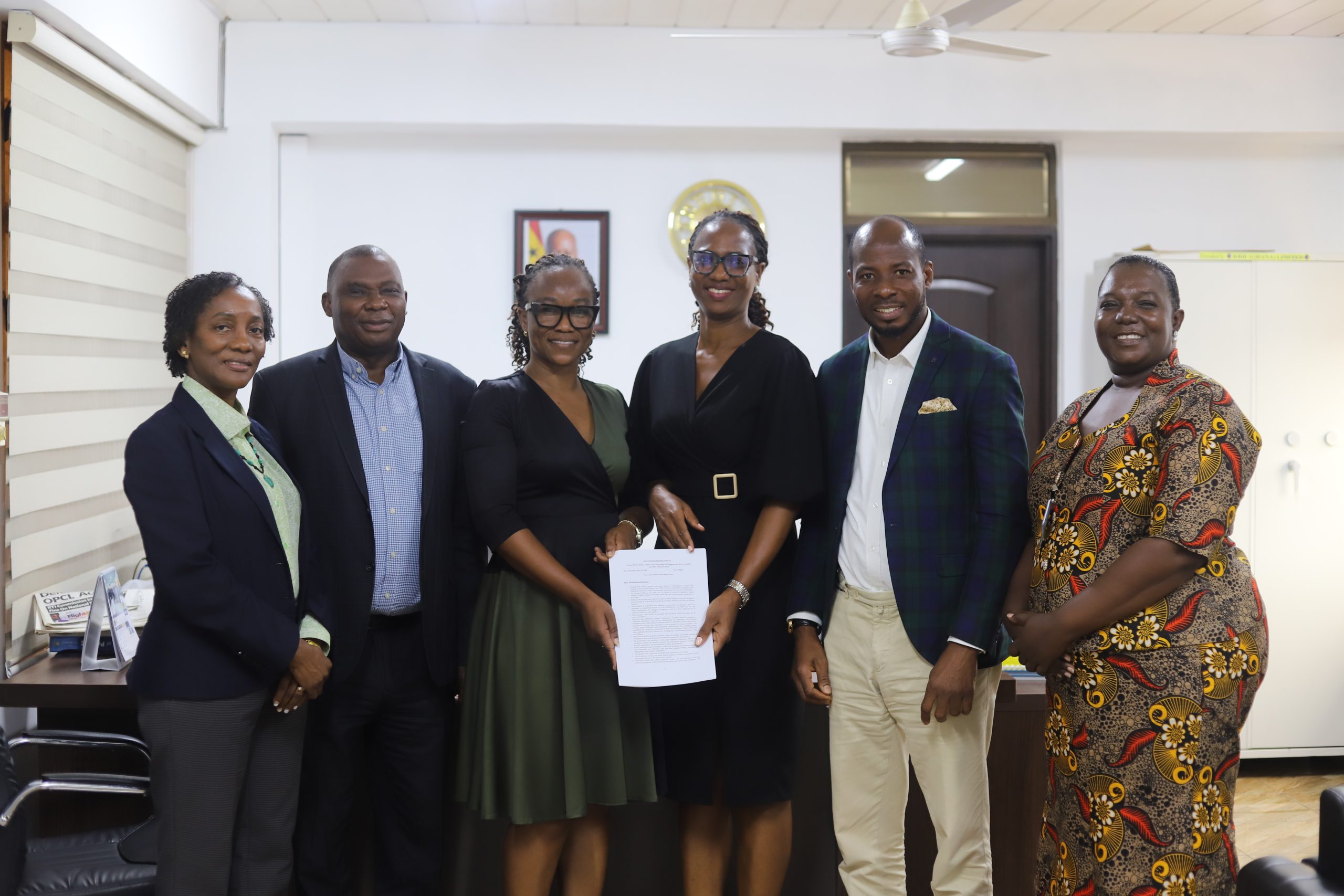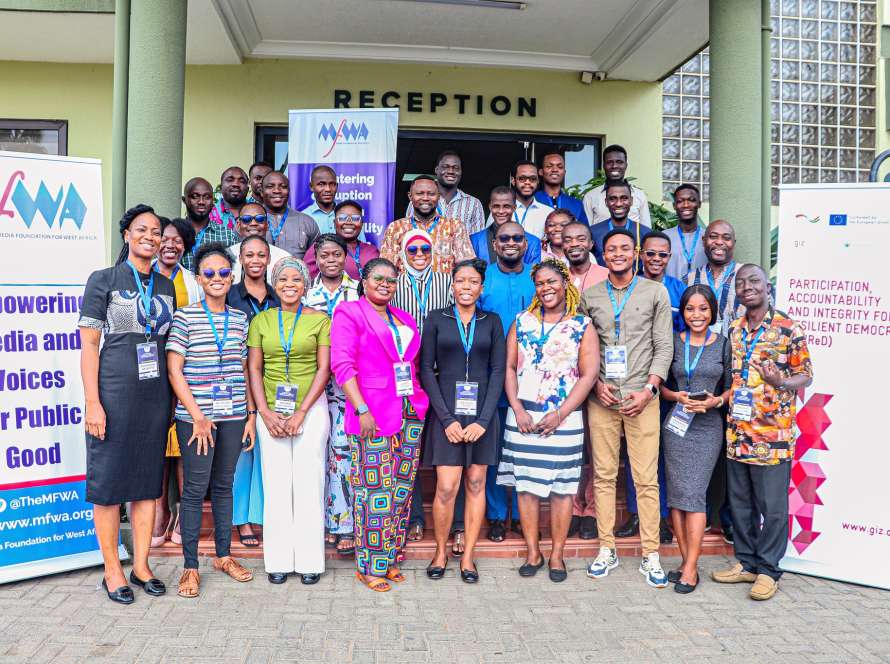On Monday, July 21 2025, the Media Foundation for West Africa (MFWA) presented key recommendations to the Economic and Organised Crime Office (EOCO) to support ongoing efforts to combat illicit financial flows (IFFs) and public sector corruption in Ghana.
The visit follows a high-level multi-stakeholder forum held on June 26, 2025, under the theme “Hidden Riches, Hollow Laws: Dissecting the Loopholes that Fuel Corruption in Ghana.” The forum brought together policymakers, legal experts, civil society actors, and anti-corruption institutions to examine the weaknesses in Ghana’s legal and institutional frameworks that enable IFFs and corruption.
The MFWA’s delegation shared a comprehensive set of policy recommendations that emerged from the forum’s keynote presentation, expert panel discussions, and audience contributions. The recommendations, handed over to the EOCO leadership, offer legal, institutional, and operational reforms aimed at improving detection, prosecution, and prevention of corruption and financial crimes in Ghana.
Among the key proposals are calls for the criminalisation of transnational bribery, currently not covered under Ghana’s Criminal Offences Act, and the revision of laws governing the asset declaration responsibilities of public officials. The proposals also urge lawmakers to address gaps in private sector bribery, the enforcement of bank accountability for control failures, and the empowerment of competent authorities to access asset declaration data for verification purposes.
Other priority recommendations include:
- Strengthening collaboration between EOCO, the Financial Intelligence Centre, and allied investigative bodies;
- Resourcing anti-graft institutions and ensuring their operational independence;
- Publishing and verifying asset declarations;
- Introducing regulations to monitor cryptocurrencies and fintech platforms;
- Providing protection and legal assurances for whistleblowers;
- Enforcing the implementation of recommendations made by oversight bodies such as the Auditor-General and the Public Accounts Committee.
During the panel discussion at the June 26 forum, moderated by legal practitioner and journalist Samson Lardy Ayenini, experts from EOCO, the Financial Intelligence Centre, and Transparency International Ghana discussed challenges in addressing unexplained wealth and IFFs, and the structural reforms needed to respond effectively.
In his keynote address, Professor Abdallah Ali-Nakyea, Associate Professor of Tax Law and Policy at the University of Ghana School of Law, called for bold legislative and institutional reforms to close the legal gaps that sustain elite corruption. He stressed the urgency of prosecuting both perpetrators and enablers of IFFs, including banks and other financial institutions that facilitate illicit transactions.
Speaking after the visit to EOCO, MFWA’s Senior Manager for the Media, Democracy and Good Governance programme, Mrs. Rosemond Ebi-Adwo Aryeetey underscored the importance of translating public dialogue into policy action, “We believe these recommendations are not just proposals, but necessary steps to restore public trust in Ghana’s anti-corruption and anti-IFF institutions. We look forward to continued engagement with state (including EOCO) and non-state actors to advance the fight against corruption and IFFs.”
The MFWA plans to share the recommendations with other key institutions in the coming weeks as part of its follow-up to the forum.
The forum was funded by the Norwegian Agency for Development Cooperation (NORAD) through Oxfam in Ghana and the Thomson Reuters Foundation. It forms part of the MFWA’s broader advocacy to enhance transparency and accountability in public governance.






